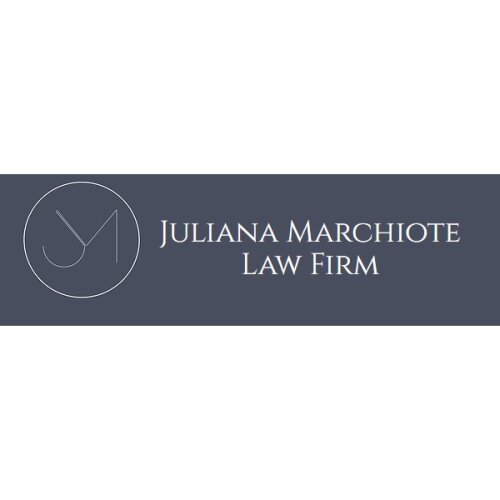Best Conveyancing Lawyers in Rio de Janeiro
Share your needs with us, get contacted by law firms.
Free. Takes 2 min.
Free Guide to Hiring a Real Estate Lawyer
List of the best lawyers in Rio de Janeiro, Brazil
About Conveyancing Law in Rio de Janeiro, Brazil
Conveyancing is the legal process of transferring property ownership from one person or entity to another. In Rio de Janeiro, Brazil, this process is governed by a combination of federal and state laws, with particular emphasis on civil law traditions. The conveyancing procedure typically involves due diligence, contract drafting, registration with notary offices (Cartórios), tax payments, and compliance with local property regulations. Whether you are buying or selling residential, commercial, or land property, understanding the local legal landscape is vital to ensure a secure and valid transaction.
Why You May Need a Lawyer
Although it is possible to undertake some property transactions without a lawyer, the legal complexities and risks involved usually make legal assistance highly recommended. Common reasons you might require a lawyer’s assistance in conveyancing include:
- Verifying property ownership and ensuring there are no legal impediments such as liens, debts, or inheritance disputes.
- Ensuring all contracts and documents are properly drafted, reviewed, understood, and signed in accordance with the law.
- Navigating the bureaucratic processes involved with property registration, transfer, and notary services in Brazil.
- Calculating and paying taxes such as the ITBI (Inter Vivos Transfer Tax) and other applicable fees.
- Identifying potential risks or fraud in property transactions and safeguarding your interests.
- Representing you in negotiations and conflict resolution if disputes arise during or after the transaction.
Local Laws Overview
Conveyancing in Rio de Janeiro is largely regulated by Brazil’s Civil Code, municipal and state regulations, and the procedures set forth by the Registry of Real Estate (Registro de Imóveis). Key points include:
- All real estate transactions must be formalized in written contracts and then registered with the local property registry office to be valid against third parties.
- The buyer is responsible for paying the ITBI tax, generally calculated as a percentage of the purchase price.
- Due diligence is essential. This includes confirming the property is free from debts, encumbrances, or pending legal actions.
- Property transactions must be notarized before a public notary, who is authorized to certify the authenticity of signatures and documents.
- Foreigners are generally allowed to purchase property but must comply with specific requirements regarding tax registration and, in certain cases, restrictions on rural or border areas.
- Legal obligations for sellers include providing all necessary documentation, up-to-date tax receipts, and property certificates.
- Failure to correctly register a property transfer can result in disputes over ownership and significant legal and financial repercussions.
Frequently Asked Questions
What is the role of a notary in property transactions?
A notary or "Cartório" is responsible for witnessing signatures, certifying documents, and ensuring the legal formalities of property transfers are met. Without notarial authentication, a real estate transaction is not considered legally binding in Brazil.
Do I need a lawyer to buy or sell property in Rio de Janeiro?
While not legally mandatory, having a lawyer is highly advisable to safeguard your interests, especially if you are unfamiliar with local property laws and procedures.
What taxes must be paid during conveyancing?
The primary tax is the ITBI (Transfer Tax), paid by the buyer. Sellers are also responsible for capital gains tax, depending on the circumstances of the sale.
How can I confirm that a property has no debts or legal encumbrances?
By performing a thorough due diligence process, including obtaining up-to-date property certificates and conducting searches in relevant public registries, often through your legal advisor.
What documents are required for conveyancing?
Common documents include identification of all parties, proof of ownership, property tax receipts, property certificates, and the signed purchase and sale agreement.
Can foreigners buy property in Rio de Janeiro?
Yes, foreigners can generally buy property, but they must obtain a CPF (Brazilian taxpayer number) and may face special restrictions for rural land or border areas.
How long does the conveyancing process take?
It varies but typically spans from several weeks to a few months, depending on document availability, due diligence findings, and registry office timings.
What are the risks of not registering the property in my name?
If the property is not properly registered, your ownership is at risk, and you could face legal challenges or lose your rights to the property.
What happens if there is a problem with the property after purchase?
Depending on the nature of the issue, you may have legal remedies such as contract cancellation, compensation, or specific performance, but swift legal advice is key.
Can I finance my property purchase?
Yes, many banks and financial institutions in Brazil offer mortgage options to both residents and qualifying foreigners, usually conditional on thorough property due diligence.
Additional Resources
For further information and assistance regarding conveyancing in Rio de Janeiro, consider reaching out to the following resources:
- Registry of Real Estate Offices (Cartórios de Registro de Imóveis) - for property registration and certification.
- OAB-RJ (Ordem dos Advogados do Brasil, Seccional Rio de Janeiro) - for locating qualified property lawyers.
- Municipality of Rio de Janeiro Tax Department - for guidance on taxes and fees.
- Federal Revenue Service (Receita Federal) - for taxpayer registration and compliance, especially for foreigners.
- Consumer Protection Agencies (PROCON) - in case of disputes or suspected fraud.
Next Steps
If you are considering buying or selling property in Rio de Janeiro, it is wise to consult a specialized conveyancing lawyer. Keep all documentation organized and conduct early due diligence to identify any potential issues. Contact a reputable property lawyer, preferably one familiar with local practices and fluent in your language if you are not a native speaker. Schedule a consultation to discuss your plans, obtain a checklist of necessary documents, and receive professional guidance throughout each step of your property transaction. Proper legal support is the best way to ensure a secure, efficient, and trouble-free conveyancing process in Rio de Janeiro, Brazil.
Lawzana helps you find the best lawyers and law firms in Rio de Janeiro through a curated and pre-screened list of qualified legal professionals. Our platform offers rankings and detailed profiles of attorneys and law firms, allowing you to compare based on practice areas, including Conveyancing, experience, and client feedback.
Each profile includes a description of the firm's areas of practice, client reviews, team members and partners, year of establishment, spoken languages, office locations, contact information, social media presence, and any published articles or resources. Most firms on our platform speak English and are experienced in both local and international legal matters.
Get a quote from top-rated law firms in Rio de Janeiro, Brazil — quickly, securely, and without unnecessary hassle.
Disclaimer:
The information provided on this page is for general informational purposes only and does not constitute legal advice. While we strive to ensure the accuracy and relevance of the content, legal information may change over time, and interpretations of the law can vary. You should always consult with a qualified legal professional for advice specific to your situation.
We disclaim all liability for actions taken or not taken based on the content of this page. If you believe any information is incorrect or outdated, please contact us, and we will review and update it where appropriate.












